When it comes to hunting knives, the choice of blade material can profoundly impact performance, durability, and ease of maintenance. Understanding the various materials available is essential for anyone looking to make an informed purchase. In this comprehensive guide, we will explore the different blade materials, their characteristics, advantages, and best uses for hunting knives. Whether you're a seasoned outdoorsman or a novice hunter, this knowledge will help you select the right knife that suits your needs.
Introduction to Blade Materials
Blade materials have come a long way since the days of stone and bone. Today's hunting knives are crafted from advanced materials designed to enhance user experience and efficiency in the field. The blade material influences everything from edge retention to corrosion resistance, making it a crucial aspect to understand. Here we’ll break down some of the most popular materials used in the blades of hunting knives.
Stainless Steel: The Reliable Workhorse
Stainless steel is perhaps the most commonly used material in the production of hunting knives. Known for its excellent corrosion resistance, stainless steel is a favorite among outdoor enthusiasts.
Characteristics of Stainless Steel
- Corrosion Resistance: This is one of the most significant benefits of stainless steel. The chromium content in the steel forms a protective layer that prevents rusting.
- Edge Retention: While stainless steel can offer good edge retention, it often requires more frequent sharpening compared to high carbon steels.
- Ease of Maintenance: Stainless steel knives are generally easier to clean and maintain, making them ideal for those who may not have time to dedicate to upkeep.
Best Uses for Stainless Steel Hunting Knives
Due to its corrosion resistance, stainless steel is excellent for hunting knives that may be exposed to wet and humid environments. Whether you're in rainy weather or cleaning game, this material provides peace of mind.
High Carbon Steel: The Edge Champion
High carbon steel is celebrated for its ability to maintain a sharper edge longer than stainless steel. While it may require more care to avoid rust, many hunters swear by its performance.
Characteristics of High Carbon Steel
- Sharpness: High carbon steel can achieve a very sharp edge and retain this sharpness throughout use.
- Durability: This material offers excellent hardness, making it resistant to chipping and other forms of wear.
- Ease of Sharpening: While it can rust, high carbon steel knives are generally easier to sharpen than their stainless counterparts.
Best Uses for High Carbon Steel Hunting Knives
If you're looking for a knife that can handle tough conditions and rigorous use—high carbon steel is the way to go. Hunters who prioritize sharpness and edge retention often prefer this material, especially in dry environments.
Damascus Steel: The Art of Craftsmanship
Renowned for its unique patterns and exceptional beauty, Damascus steel is not just a treat for the eyes; it also offers remarkable performance attributes that appeal to avid knife collectors and serious hunters alike.
Characteristics of Damascus Steel
- Aesthetic Appeal: Each Damascus blade has a distinct pattern, making it a one-of-a-kind piece.
- Balanced Performance: Combining different types of steels allows for both toughness and sharpness, resulting in a well-rounded blade.
- Corrosion Resistance: Depending on the steels used, some Damascus knives can be quite resistant to rust, though it may not be as reliable as stainless steel.
Best Uses for Damascus Steel Hunting Knives
These knives are perfect for those who appreciate craftsmanship as much as functionality. They serve not only as tools but also as collectibles that can enhance the hunting experience.
Titanium: The Lightweight Winner
Titanium knives have gained popularity due to their incredible strength-to-weight ratio. While not as commonly used for hunting blades, titanium presents benefits that are worth considering.
Characteristics of Titanium
- Lightweight: Titanium knives are significantly lighter than steel counterparts, making them easier to carry on long treks.
- Corrosion Resistance: Titanium is highly resistant to rust, which is beneficial for outdoor applications.
- Strength: Higher strength means regions of the blade can be thinner without sacrificing durability.
Best Uses for Titanium Hunting Knives
If lightweight gear is a priority for you, then a titanium hunting knife could be your best option. Ideal for backpackers and hunters needing to travel light, titanium offers the convenience and performance needed in the field.
Choosing the Right Blade Material for Your Hunting Needs
Understanding the various blade materials available empowers you to select the perfect hunting knife that aligns with your needs. Here are some tips to help you make the best choice:
- Consider Your Environment: If you’ll be in wet or humid conditions, opt for stainless steel. In drier climates, high carbon might be the better option.
- Evaluate Your Usage: If you prioritize sharpness and don’t mind a little extra maintenance, high carbon steel might suit you best.
- Balance Aesthetics and Performance: For those who want a stunning knife that performs well, Damascus steel is an attractive choice.
- Weight Matters: If you're trekking long distances, consider the lightweight options like titanium.
Overall, the type of blade material you choose can dictate your hunting efficiency. It’s essential to consider your personal preferences, the conditions in which you’ll be using your knife, and your willingness to maintain the blade over time.
Beyond the Blade: Other Factors to Consider
While blade material is crucial, there are several other features that play an essential role in the performance of hunting knives. Here are some of the additional factors to consider:
Blade Geometry and Design
The design of the blade affects cutting efficiency and maneuverability. Different blade shapes, such as drop point, tanto, or clip point, cater to various applications ranging from skinning to filleting.
Handle Material and Ergonomics
The handle material and design impact not just comfort, but also grip security. Materials like G10, Micarta, and rubber provide varying levels of grip and comfort. Always choose a handle that feels good in your hand during extended use.
Sheath Quality
The sheath that accompanies your hunting knife is equally important. It protects the blade and ensures safety during transport. Invest in a sheath that is durable and fits securely around the knife.
Final Touch: Caring for Your Hunting Knife
After choosing the perfect material for your hunting knife, maintaining it correctly is crucial for longevity and performance. Here are some care tips to keep your knife in optimal condition:
- Clean After Each Use: Always clean your knife after each use to remove dirt, sap, or blood that can lead to corrosion.
- Regular Sharpening: Keep the edge sharp by regularly honing or sharpening your knife using appropriate tools.
- Store Properly: Store your hunting knife in a dry environment, preferably in a sheath, to prevent damage and rust.
- Periodic Oil Treatment: Use mineral oil or knife maintenance oil to protect the blade, especially for high carbon knives that are prone to rust.
Embrace the Outdoors with Knowledge
Understanding different blade materials is essential for selecting the right hunting knife that suits your needs. Whether you prefer the resilience of stainless steel, the sharpness of high carbon steel, the artistry of Damascus, or the lightness of titanium, there’s a material out there that will enhance your hunting experience. Make informed choices and embrace the outdoors with confidence in your tools. Happy hunting!


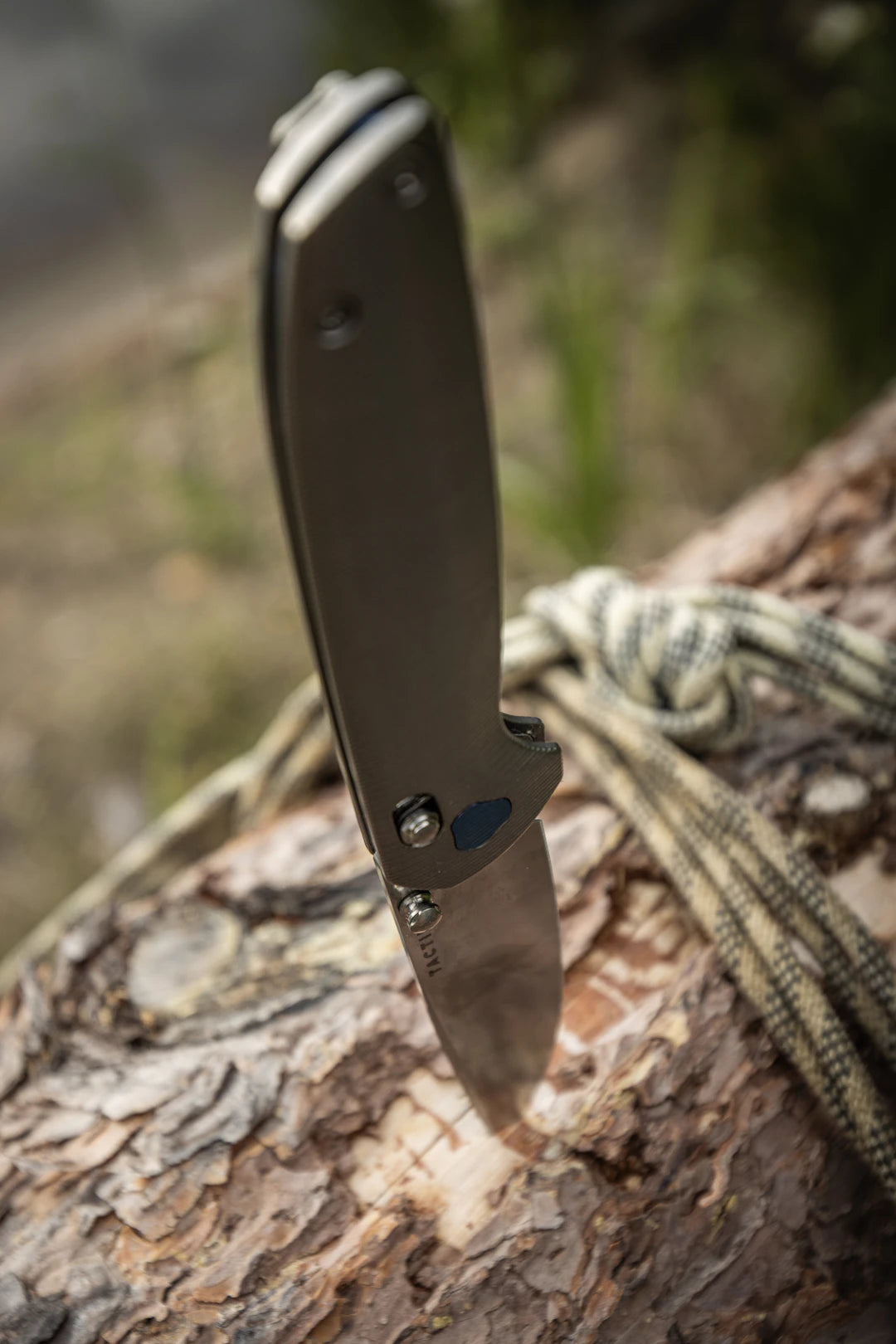





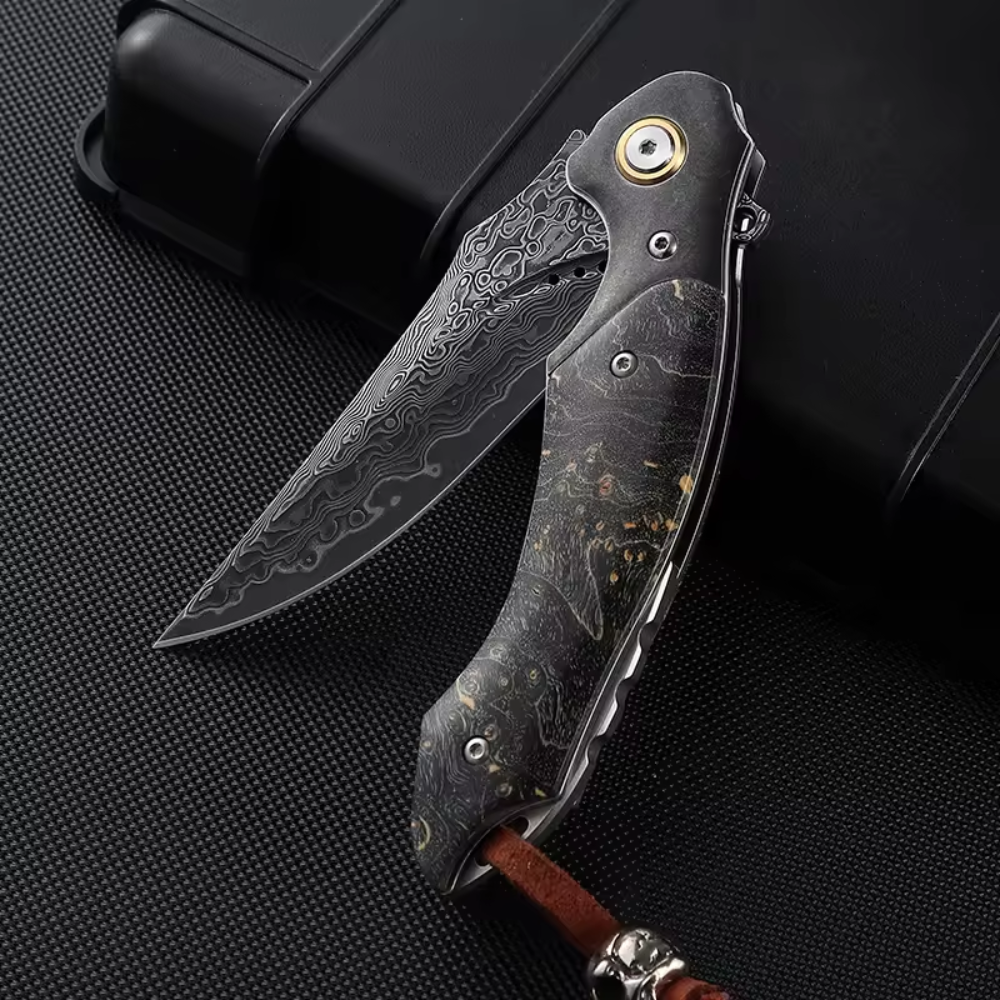
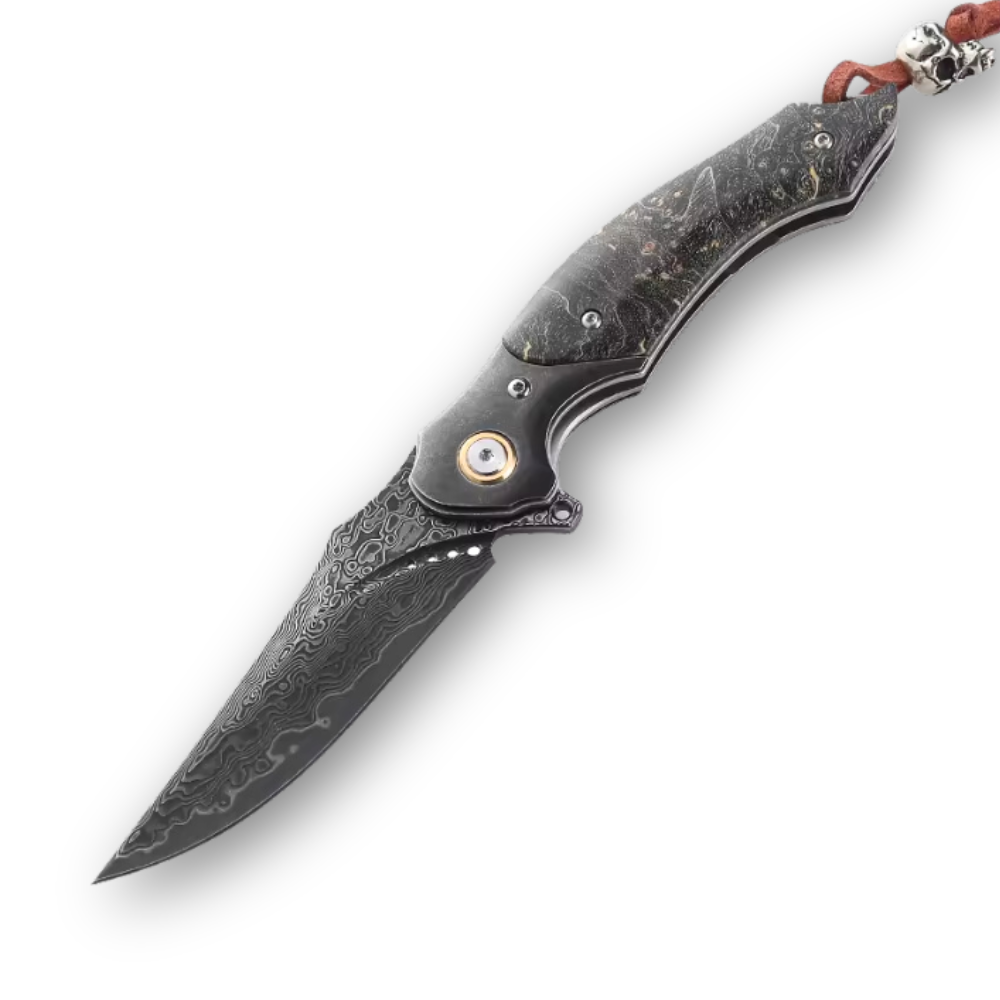
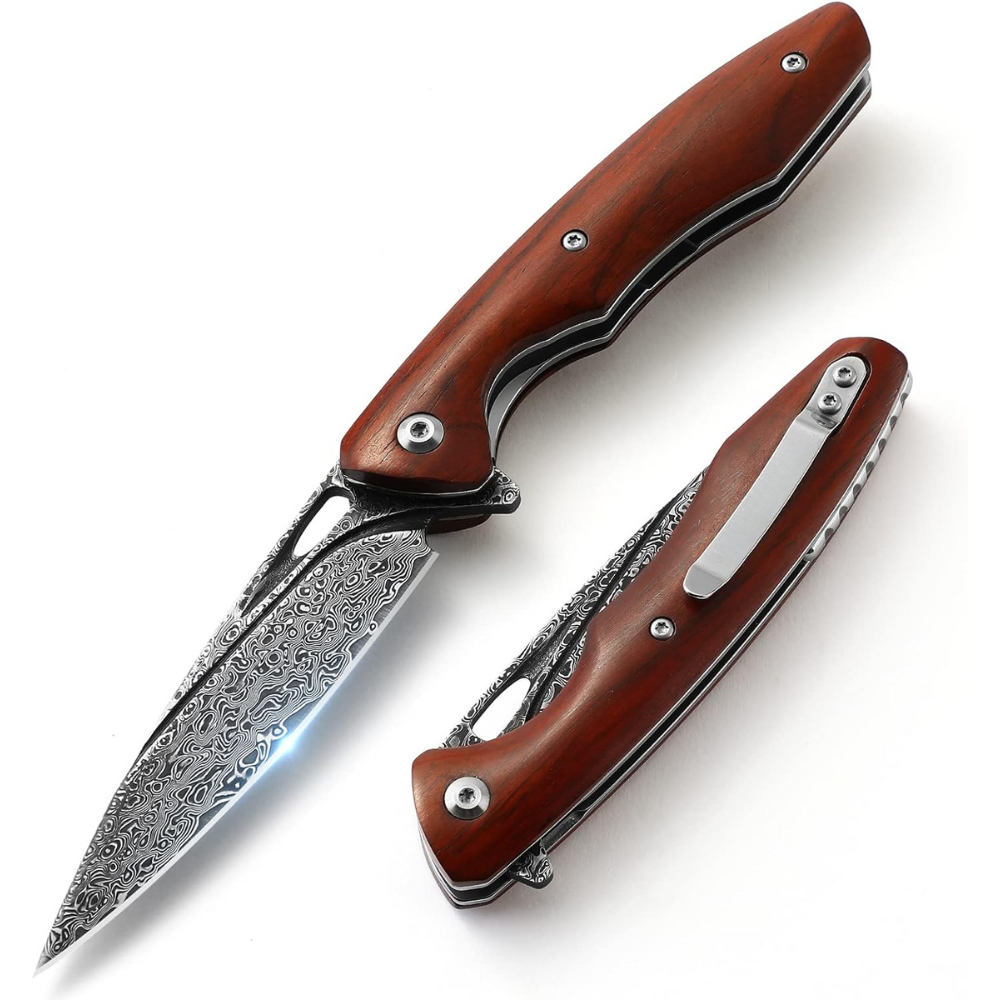
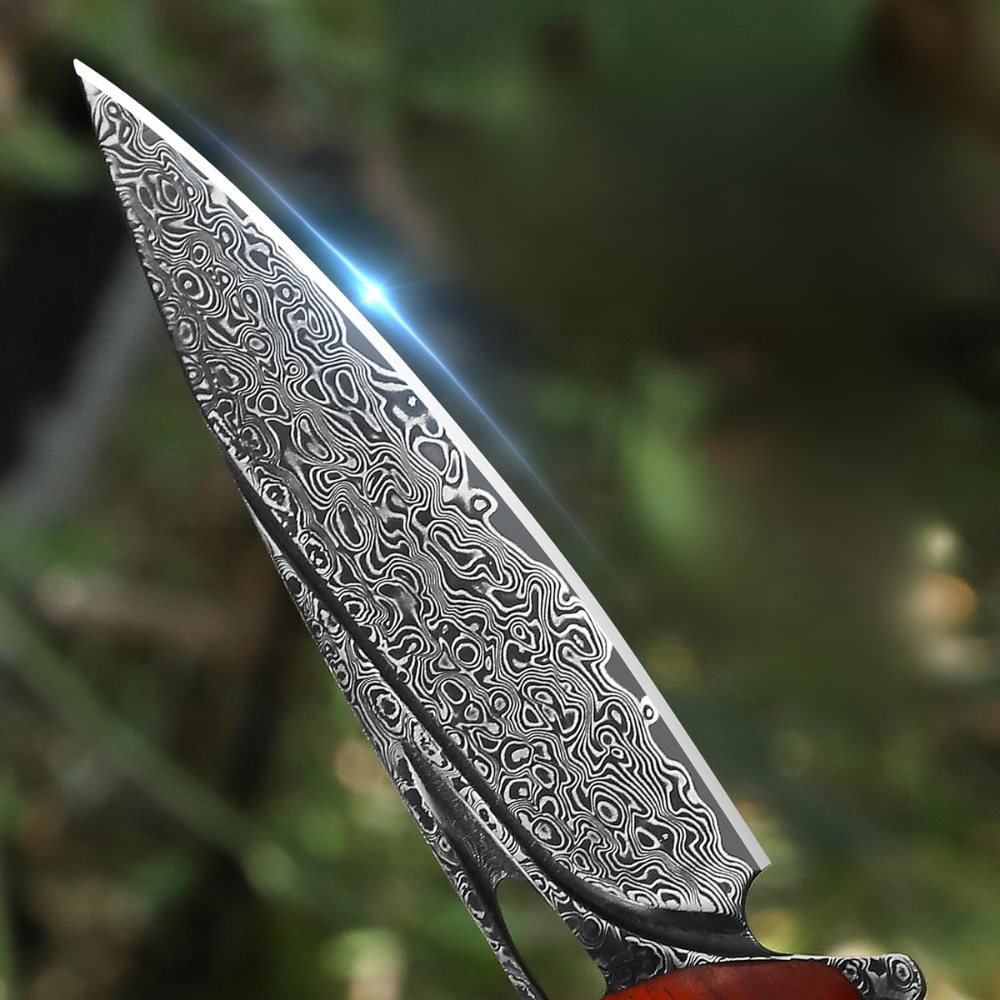








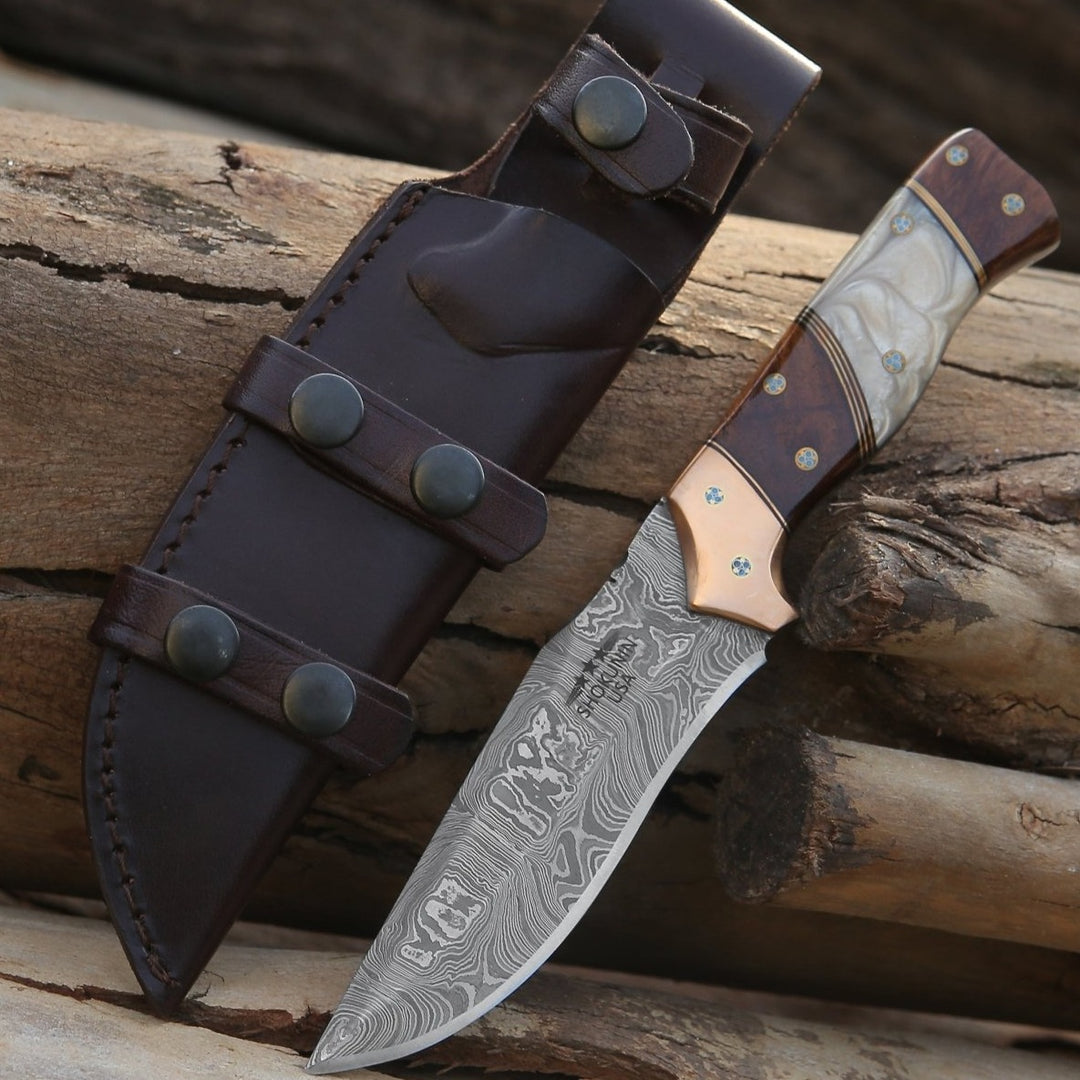
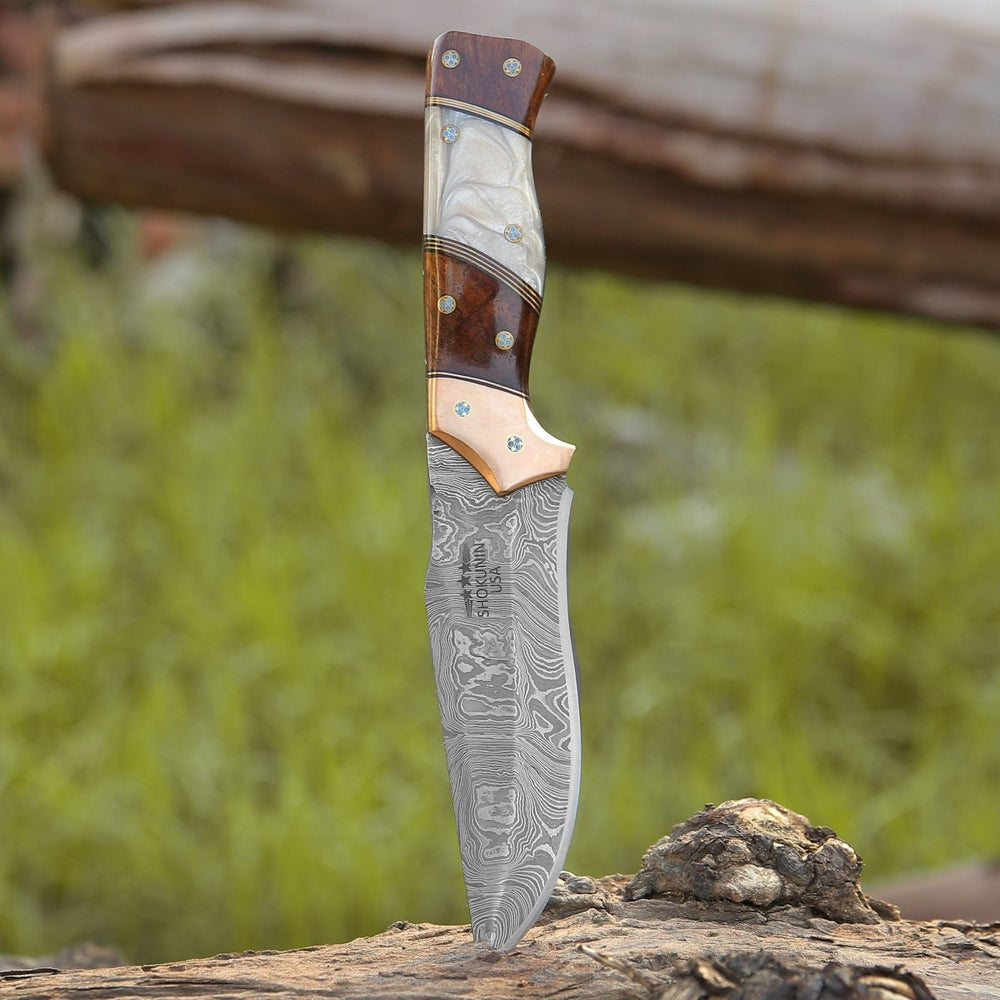


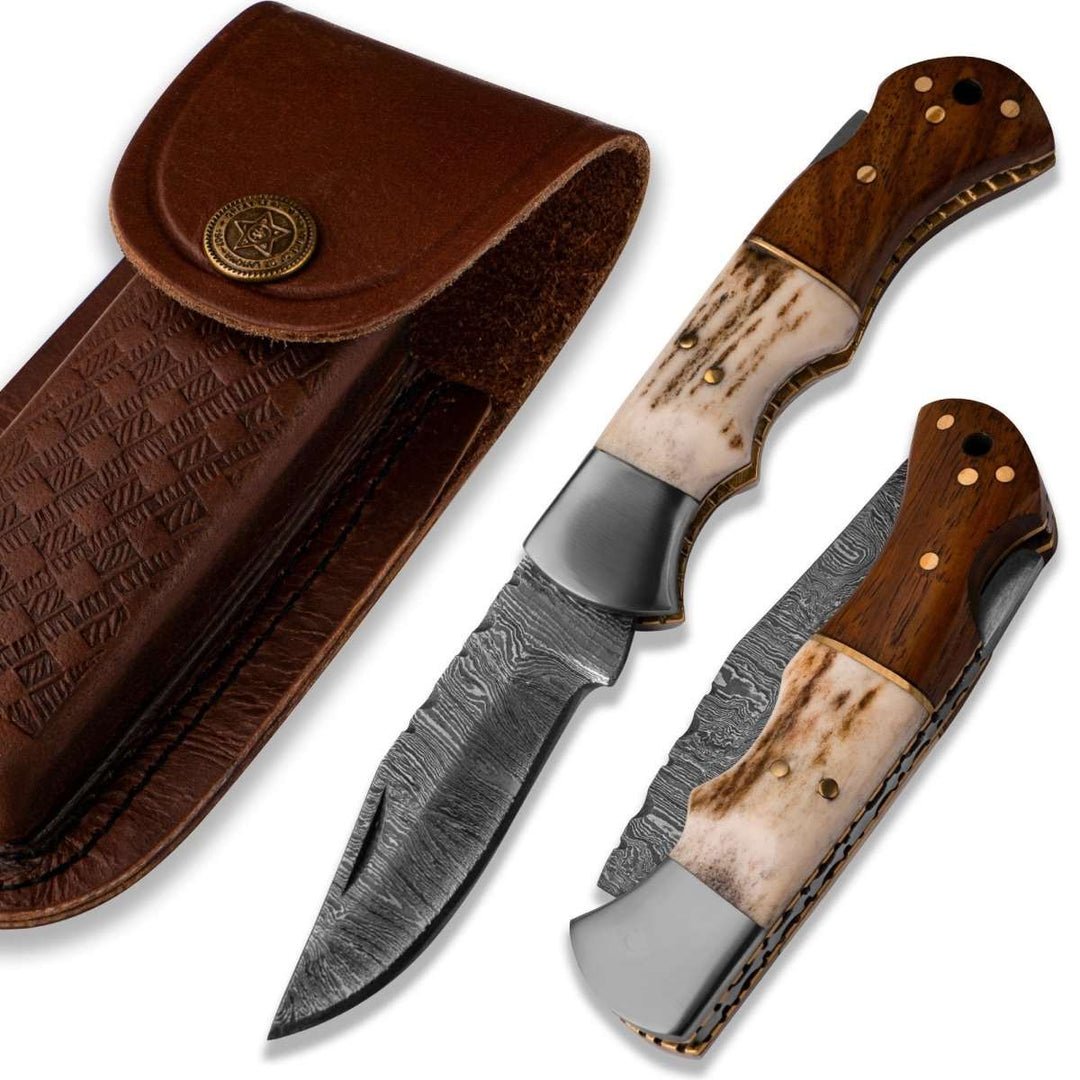
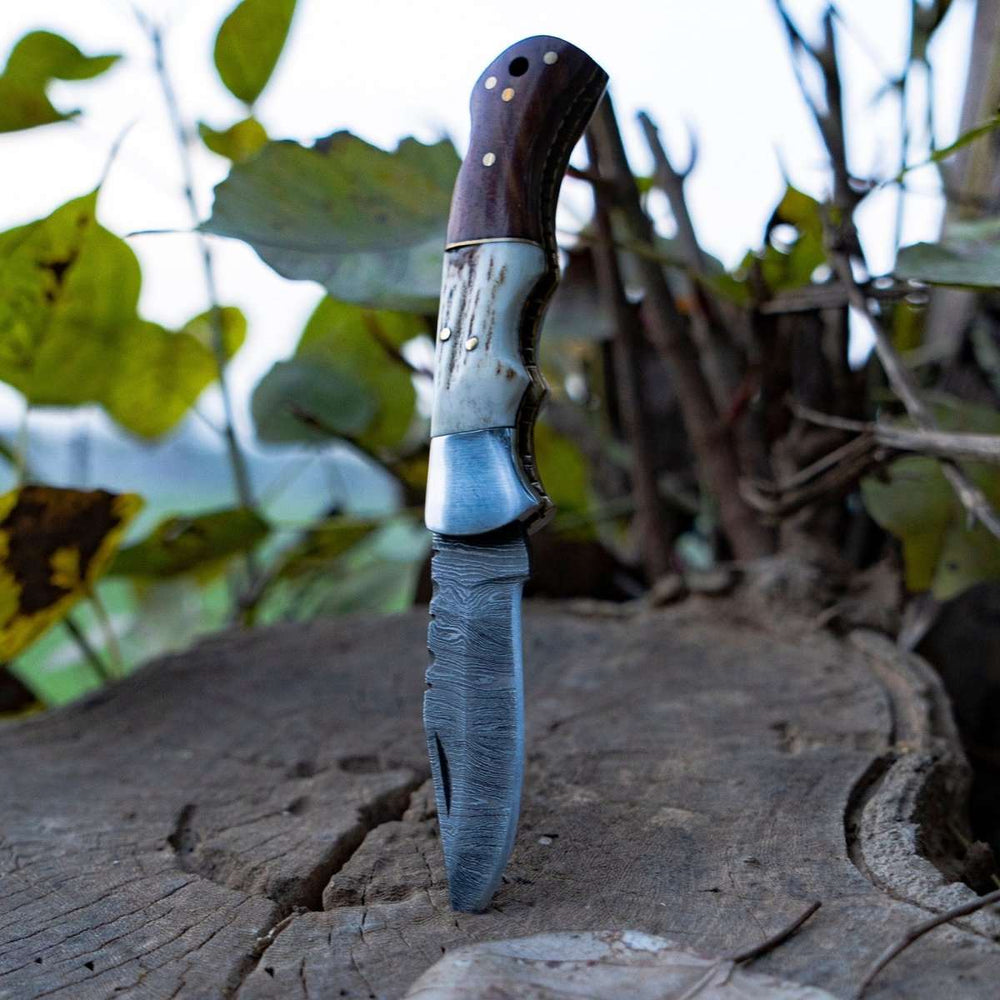




Dejar un comentario